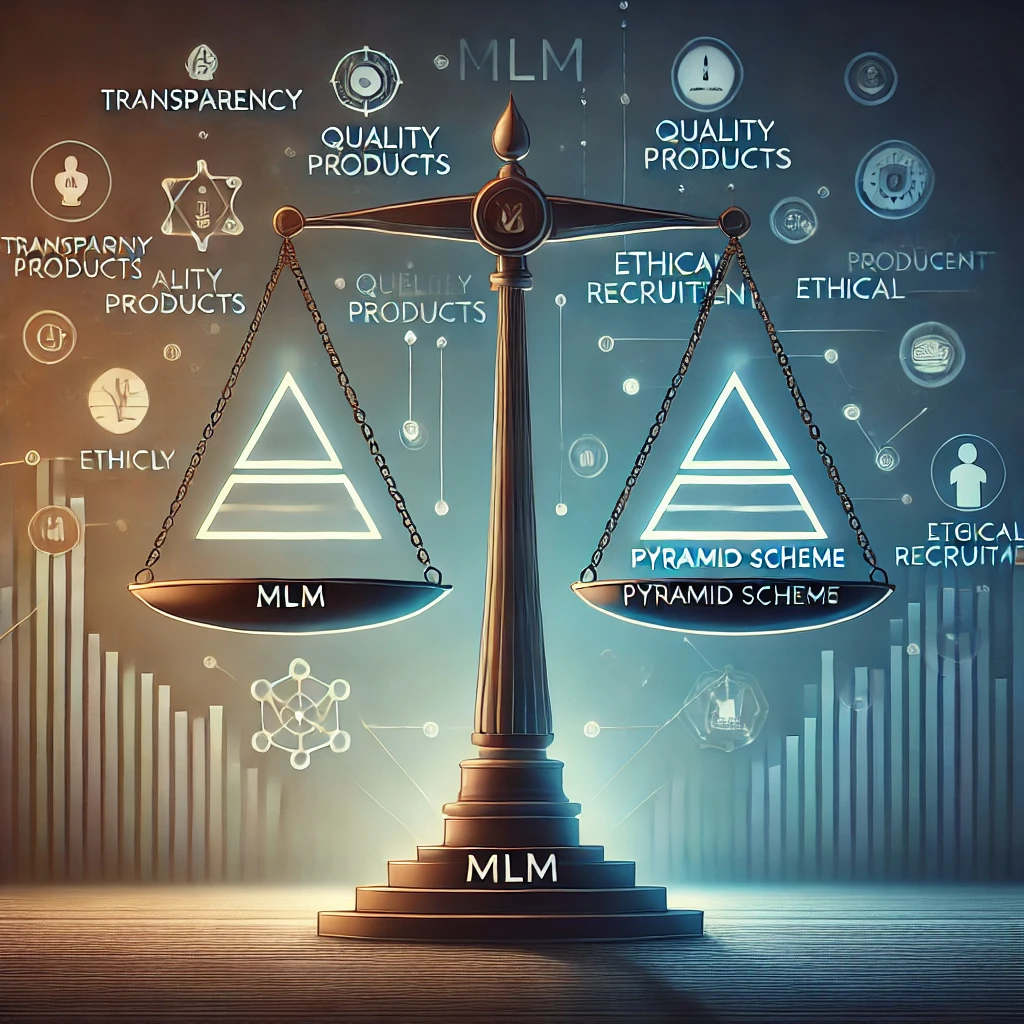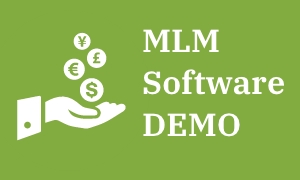Multi-level marketing (MLM) has emerged as a legitimate business model, enabling individuals to earn income by selling products or services and recruiting others to join their networks. However, MLM has often been misinterpreted as being synonymous with pyramid schemes, which are illegal and exploitative. Although there are structural similarities, modern MLM models have adopted various strategies to distance themselves from pyramid schemes.
This blog delves into how modern MLM frameworks set themselves apart through transparency, product quality, legal compliance, ethical recruitment practices, and realistic income potential. Understanding these differences is essential for anyone considering an MLM opportunity.
Understanding Pyramid Schemes
To grasp the distinctions, it’s crucial to define a pyramid scheme. Pyramid schemes rely on a fraudulent structure where participants earn income by recruiting new members rather than selling legitimate products or services. Often, participants must pay an initial fee, which is funneled to those higher up the pyramid. This system primarily focuses on recruitment, resulting in unsustainable growth that ultimately collapses when new recruits dry up.
Legal Distinctions Between MLM and Pyramid Schemes
MLM companies and pyramid schemes are regulated under different legal frameworks. Pyramid schemes are illegal in many countries, including the U.S., and are monitored by agencies like the Federal Trade Commission (FTC). These schemes violate consumer protection laws by emphasizing recruitment over product sales.
In contrast, MLM businesses can operate legally if they follow certain guidelines. A legitimate MLM business generates most of its income through product sales rather than recruitment. This distinction safeguards the integrity of legitimate MLM models.
Operational Characteristics of Modern MLM Models
1. Emphasis on Quality Products
Modern MLM companies prioritize offering high-quality products. In legitimate MLM structures, product sales account for the bulk of participants’ income. Unlike pyramid schemes, which focus on recruitment, MLM companies aim to create valuable products that consumers want to purchase. For instance, many health and wellness MLMs invest heavily in research and development to ensure their products are effective and meet industry standards.
2. Transparent Compensation Structures
A key differentiator for legitimate MLMs is the transparency of their compensation plans. These companies provide clear information on how participants can earn through sales, commissions, and bonuses, with product sales being the primary source of income. Many MLMs also publish income disclosure statements, which outline potential earnings at various levels. This transparency helps manage expectations and promotes informed decisions.
3. Ethical Recruitment Practices
Ethical recruitment is central to modern MLM models. Participants are encouraged to focus on product sales before expanding their networks. This customer-centric approach ensures the business is driven by genuine sales rather than aggressive recruitment tactics. By creating a supportive community, MLMs promote sustainable growth.
4. Robust Training and Support
Unlike pyramid schemes, which often provide minimal guidance to recruits, modern MLMs prioritize extensive training and support. Participants receive resources like online courses, workshops, and mentorship to help them effectively market and sell products, as well as develop business skills.
5. Setting Realistic Expectations
Modern MLM companies are committed to setting realistic expectations for potential recruits. Rather than promising easy wealth, they position MLM as a long-term business opportunity that requires effort and perseverance. Income disclosure statements further clarify the earning potential, fostering a transparent and honest business environment.
6. Compliance with Regulations
Reputable MLM companies ensure they comply with legal standards and regulations. Many actively work with regulatory agencies like the FTC to verify their business practices. This compliance is vital to maintaining their legitimacy and protecting participants’ investments.
Spotting Red Flags: Avoiding Pyramid Schemes
For those exploring MLM opportunities, it’s important to recognize potential warning signs of pyramid schemes. Here are some red flags:
- Excessive Upfront Costs: Companies that require significant upfront investments without offering tangible products or services could be pyramid schemes.
- Focus on Recruitment: If the primary emphasis is on recruiting new members rather than selling products, this is a major concern.
- Low Product Quality: Pyramid schemes often offer overpriced or low-quality products because recruitment, not sales, drives their income.
- Minimal Earnings from Sales: In a legitimate MLM, income should come from product sales. If most income is tied to recruitment, proceed with caution.
Conclusion
Modern MLM models have evolved to distinguish themselves from pyramid schemes by prioritizing product quality, transparent compensation, ethical recruitment practices, and legal compliance. These factors help maintain the legitimacy of MLM as a viable business model for individuals committed to long-term success.
If you’re considering entering the MLM space and need reliable software solutions to manage your business, Gegosoft Technologies offers advanced, customized MLM software to help you grow and efficiently manage your network. Contact us today for more information on how we can support your MLM business.













